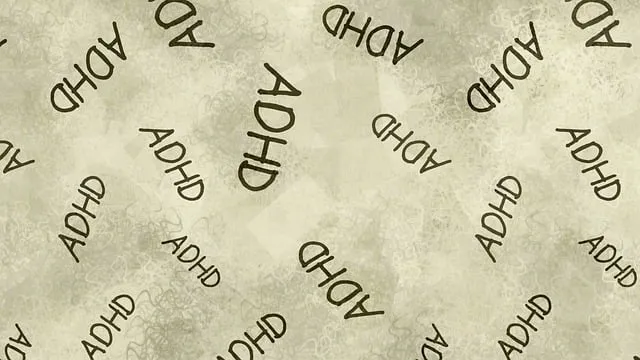Cultural sensitivity in mental healthcare, essential for organizations like Kaiser Permanente, involves recognizing and respecting diverse cultural backgrounds. At Kaiser Permanente Psychiatry Phone Number Englewood, this means adapting practices to incorporate patients' spiritual beliefs and family dynamics, addressing challenges through training, awareness campaigns, conflict resolution techniques, and mindfulness meditation. Enhancing training for mental health professionals and using culturally sensitive risk assessment tools create inclusive treatment environments that significantly impact intervention success.
Cultural sensitivity is paramount in mental healthcare, ensuring equitable access to care for diverse patients. This article explores cultural sensitivity as a cornerstone of effective treatment, focusing on strategies to overcome challenges faced by providers at Kaiser Permanente Psychiatry Phone Number Englewood. We delve into the importance of understanding cultural nuances, addressing barriers to culturally competent care, and providing tailored interventions that respect individual and collective identities. By implementing these strategies, mental health practices can foster inclusive environments, enhancing patient outcomes and community trust.
- Understanding Cultural Sensitivity in Mental Healthcare
- Challenges and Barriers in Providing Culturally Competent Care at Kaiser Permanente Psychiatry Phone Number Englewood
- Strategies for Enhancing Cultural Sensitivity in Mental Health Practices
Understanding Cultural Sensitivity in Mental Healthcare

Cultural sensitivity in mental healthcare is a vital aspect that goes beyond treating symptoms. It involves recognizing and respecting the diverse cultural backgrounds and beliefs of patients, ensuring they receive care that aligns with their values and traditions. This approach is particularly relevant when considering organizations like Kaiser Permanente, with its various locations, including Englewood, where professionals interact with individuals from varied ethnic, racial, and cultural groups.
Understanding cultural sensitivity requires healthcare providers to be adept at navigating these differences, adapting their practices, and offering care tailored to the unique needs of each patient. This can involve incorporating aspects of a patient’s culture into treatment plans, such as considering spiritual beliefs for holistic healing or understanding family dynamics in certain cultures for better communication. Organizations like Kaiser Permanente often emphasize this through initiatives like Healthcare Provider Cultural Competency Training, ensuring staff are equipped to deliver culturally sensitive care.
Challenges and Barriers in Providing Culturally Competent Care at Kaiser Permanente Psychiatry Phone Number Englewood

Providing culturally competent care at Kaiser Permanente Psychiatry Phone Number Englewood faces unique challenges. One significant barrier is the diverse nature of the patient population, reflecting various cultural backgrounds, beliefs, and communication preferences. Mental healthcare professionals must navigate these differences while ensuring effective treatment plans that resonate with each individual’s unique cultural context. This requires a deep understanding of cultural nuances, including customs, values, and traditional healing practices, which can sometimes diverge significantly from conventional Western psychiatric approaches.
Another hurdle is the potential for unconscious biases and stereotypes among healthcare providers. These biases may inadvertently influence interactions with patients, leading to miscommunication or inappropriate treatment recommendations. To overcome these challenges, Kaiser Permanente Englewood has been actively implementing public awareness campaigns focused on cultural sensitivity, integrating conflict resolution techniques to bridge communication gaps, and promoting emotional regulation strategies that respect diverse cultural expressions of mental distress.
Strategies for Enhancing Cultural Sensitivity in Mental Health Practices

Mental healthcare practices can greatly benefit from incorporating cultural sensitivity strategies to create inclusive and effective treatment environments. One key approach is to enhance training for mental health professionals. This includes teaching them about different cultural beliefs, values, and practices related to mental illness. For instance, understanding the role of family dynamics in some cultures or the importance of spiritual practices can provide valuable insights during therapy sessions. Many organizations, like Kaiser Permanente psychiatry services in Englewood, prioritize these cultural competency programs to ensure their professionals are equipped to serve diverse patient populations.
Additionally, integrating mindfulness meditation techniques into treatment plans can foster a sense of calm and openness, allowing patients from various cultural backgrounds to feel more at ease discussing sensitive topics. Encouraging open conversations about mental health challenges while considering cultural nuances enables healthcare providers to offer tailored support. Further, implementing risk assessment tools specifically designed with cultural sensitivity in mind helps identify potential risks and triggers for minority patients, ensuring their safety and well-being. Promoting emotional well-being through these inclusive practices can significantly impact the overall success of mental health interventions.
Cultural sensitivity is a cornerstone of effective mental healthcare, and addressing the challenges faced by organizations like Kaiser Permanente Psychiatry Phone Number Englewood is vital. By implementing strategies that promote cultural competency, mental health practices can create inclusive environments that respect diverse beliefs and backgrounds. This not only enhances patient outcomes but also fosters trust and improves access to care for all communities, ensuring everyone receives the supportive and understanding treatment they deserve.






